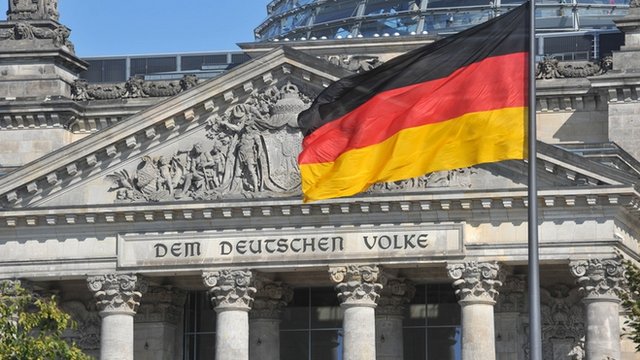It wasn't that long ago that Kremlin officials could hardly avoid laughing when asked about the economic sanctions imposed on Russia by the West. As long as every NATO member state jealously sought to protect its own business interests, things "weren't all that bad," they gloated.
But since last week, their moods have darkened. For months, the European Union in particular had been reluctant to enact effective penalties against Moscow. Last Wednesday, though, the 28 EU heads of state and government cleared a psychological hurdle: For the first time, they opted go beyond sanctions targeting individual political leaders in Moscow, adding prohibitions against doing business with specific Russian companies that contribute to the destabilization of the situation in Ukraine. A concrete list is to be presented by the end of the month. European development banks have also been banned from providing loans to Russian companies.
The US, for its part, penalized a dozen leading Russian conglomerates, including oil giant Rosneft, natural gas producer Novatek, Gazprombank and the weapons manufacturer Kalashnikov. From now on, they are forbidden from borrowing money from American monetary institutions and from issuing medium- and long-term debt to investors with ties to the US.
For the companies involved, the penalties are a significant blow. It has become difficult to acquire capital in Russia itself, with both domestic and foreign investors withdrawing their money from the country in recent months. It is hardly surprising, then, that Russian Prime Minister Dmitry Medvedev spoke of a return to the Cold War and President Vladimir Putin warned that sanctions "usually have a boomerang effect."
Even prior to the sanctions, the Russian economy had been struggling. Now, though, the Ukraine crisis is beginning to make itself felt in Germany as well. German industry's Committee on Eastern European Economic Relations believes that the crisis could endanger up to 25,000 jobs in Germany. Were a broad recession to befall Russia, German growth could sink by 0.5 percent, according to a Deutsche Bank study.
Significant Risks
The most recent US sanctions, warns Eckhard Cordes, head of the Committee on Eastern European Economic Relations, have placed an additional strain "on the general investment climate." Particularly, he adds, because European companies have to conform to the American penalties.
By last Thursday, just a day after the US sanctions were announced, the German-Russian Foreign Trade Office in Moscow was besieged by phone calls from concerned German companies who do business with both the US and Russia. The German Chambers of Commerce and Industry estimate that up to a quarter of German companies that do business abroad could be affected. And the risks are significant, with large fines threatening those who violate the American sanctions, whether knowingly or not.
Stefan Fittkau, who heads the Moscow office of EagleBurgmann, the Bavaria-based industrial sealing specialists, says company sales have already plunged by 30 percent. "Orders have been cancelled or delayed -- or we simply don't receive them anymore," he says. Novatek, Russia's second largest natural gas company, for example, had hired EagleBurgmann to take care of seals at a vast liquefied natural gas facility on the Yamal Peninsula in Siberia. Now, though, doing business with Novatek is no longer allowed.
Radical Steps
The inclusion of Rosneft on the list also affects more than a dozen German companies: The construction firm Bilfinger maintains facilities for Rosneft, for example, while Siemens received a €90 million contract to supply turbines and generators. "In the end, both sides, the Russians and the Europeans, will lose," says Frank Schauff, head of the Association of European Businesses in Moscow.
Already, the uneasiness can be seen in the Ifo Business Climate Index. One in three of the companies surveyed at the end of June said it expected adverse effects. "Russian customers have begun looking for suppliers outside of Europe," says Ulrich Ackermann, a foreign trade expert with the German engineering association VDMA. "They are concerned that European companies, because of the threat of increased sanctions, won't be able to deliver."
Even prior to the latest sanctions, business has been slowing in almost all sectors. The Düsseldorf-based energy giant E.on, for example, recently built power stations in Russia worth €9 billion. Most of the generators are already online, but because the economy in Russia is suffering, the returns are much lower than forecast. Volkswagen is a further example. The carmaker's sales figures for 2014 are 10 percent lower than they were last year. Opel's figures dropped by 12 percent during the first five months of the year.
Already, Opel has been forced to take a radical step. In St. Petersburg, where the Astra is manufactured, the company shut down the assembly lines recently for several weeks.
Translated from the German by Charles Hawley
The Boomerang Effect: Sanctions on Russia Hit German Economy Hard




























Laissez un commentaire Votre adresse courriel ne sera pas publiée.
Veuillez vous connecter afin de laisser un commentaire.
Aucun commentaire trouvé